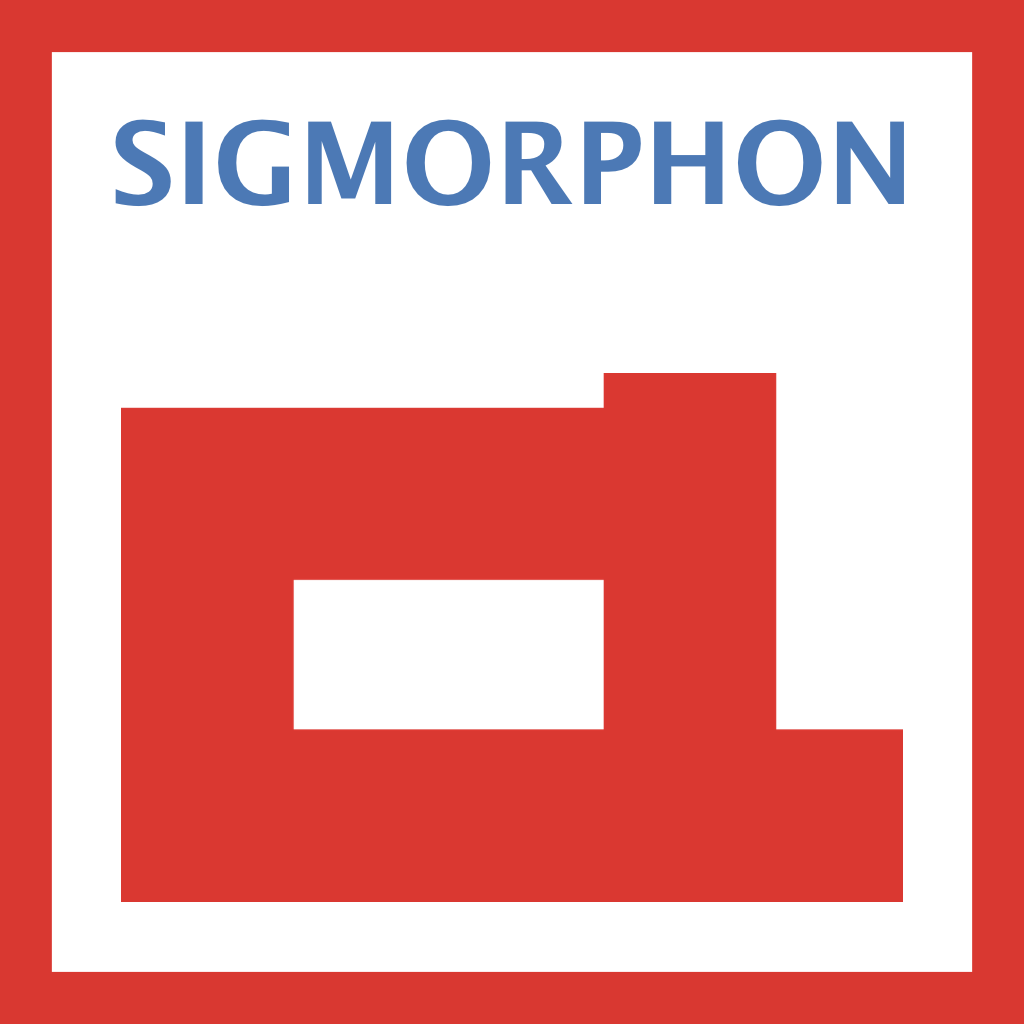co-located with EMNLP 2018
Brussels, Belgium
October 31, 2018
(Program here) (Register through EMNLP)
The workshop will gather researchers who apply computation to morphology, phonology, and phonetics. Work that addresses orthographic issues is also welcome. Papers will present significant, original, and unpublished research, including strong work in progress. Appropriate topics include (but are not limited to) the following:
- New formalisms, computational treatments, or probabilistic models of existing linguistic formalisms
- Unsupervised, semi-supervised or machine learning of linguistic knowledge
- Models of psycholinguistic experiments
- Morpheme identification and word segmentation
- Algorithms, including finite-state methods
- Corpus linguistics
- Machine transliteration and back-transliteration
- Speech technologies relating to phonetics or phonology
- Speech science (both production and comprehension)
- Analysis or exploitation of multilingual, multi-dialectal, or diachronic data
- Instructional technologies for second-language learners
- Integration of morphology, phonology, or phonetics with other NLP tasks
- Tools and resources
- Approaches to orthographic variation
- Approaches to universal morphological reinflection
SIGMORPHON encourages interaction between work in computational and theoretical linguistics. Approaches to phonetics, phonology, and morphology profit from the interaction. Our recent meetings have been successful in this regard, and this will continue in 2018. The workshop allows cross-pollination of tools and models between theoretical and computational linguists.
Important dates
1320 July 2018: Paper submission deadline- 18 August 2018: Notification of acceptance
- 31 August 2018: Camera-ready papers due
- 31 October 2018: Workshop
Paper submission
Online submission link: https://www.softconf.com/emnlp2018/SIGMORPHON/
Content
Long papers should be original, topical, and clear. Completed work is preferable to intended work. Either way, the paper must disclose the state of completion of the reported results. We also encourage short submissions. These can either cover research or describe important problems (new or old).
Submission format
The only accepted format for submitted papers is Adobe PDF. Submissions should be anonymous, without authors or an acknowledgement section; self-citations should appear in third person. Submissions should follow the two-column format of EMNLP proceedings, and long papers should not exceed eight (8) pages, short papers should not exceed four (4) pages. Unlimited additional pages are allowed for the References section in both cases. (Note: A previous version of this page mistakenly claimed that only one page is allowed.) However, all material other than the bibliography must fall within the first 8/4 pages! We strongly recommend the use of the LaTeX style files or Microsoft Word document template on the EMNLP conference web site. We reserve the right to reject submissions that do not conform to these styles, including font size restrictions.
IMPORTANT: New submission guidelines
EMNLP 2018 adopts ACL’s new policies for submission, review, and citation. Submissions that violate any of these policies will be rejected without review. Most importantly, the policies refer to the anonymity period, which begins one month before the SIGMORPHON 2018 deadline and ends at time of notification (or withdrawal).
Shared task
See here.
Organizers
- Sandra Kuebler, Indiana University
- Garrett Nicolai, Johns Hopkins University
Program Committee
- Noor Abo Mokh, IU
- Adam Albright, MIT
- Jane Chandlee, Haverford College
- Çağrı Çöltekin, University of Tübingen
- Ryan Cotterell, Johns Hopkins University
- Daniel Dakota, Indiana University
- Thierry Declerck, DFKI
- Ewan Dunbar, Laboratoire de Sciences Cognitives et Psycholinguistique, Paris
- Jason Eisner, Johns Hopkins University
- Micha Elsner, The Ohio State University
- Sharon Goldwater, University of Edinburgh
- Kyle Gorman, Google
- Nizar Habash, NYU Abu Dhabi
- Mike Hammond, University of Arizona
- Mans Hulden, University of Colorado
- Adam Jardine, Rutgers University
- Gaja Jarosz, University of Massachusetts Amherst
- Christo Kirov, Johns Hopkins University
- Greg Kobele, University of Chicago
- Greg Kondrak, University of Alberta
- Kimmo Koskenniemi, University of Helsinki
- Andrew Lamont, University of Massachusetts Amherst
- Karen Livescu, TTI Chicago
- Arya McCarthy, Johns Hopkins University
- Kevin McMullin, University of Ottawa
- Kemal Oflazer, CMU Qatar
- Jeff Parker, Brigham Young University
- Gerald Penn, University of Toronto
- Jelena Prokic, Ludwig-Maximilians-University Munich
- Mohamad Salameh, CMU-Qatar
- Miikka Silfverberg, University of Colorado
- Andrea Sims, The Ohio State University
- Kairit Sirts, Macquarie University
- Richard Sproat, Google
- Kenneth Steimel, IU
- Reut Tsarfaty, The Open University of Israel
- Francis Tyers, Higher School of Economics
- Richard Wicentowski, Swarthmore University
- Anssi Yli-Jyrä, University of Helsinki
- Kristine Yu, University of Massachusetts Amherst
